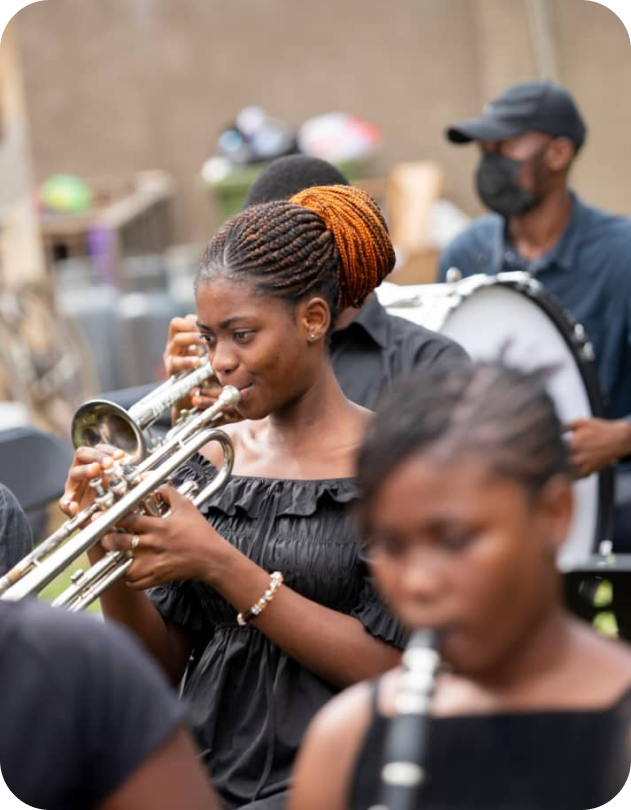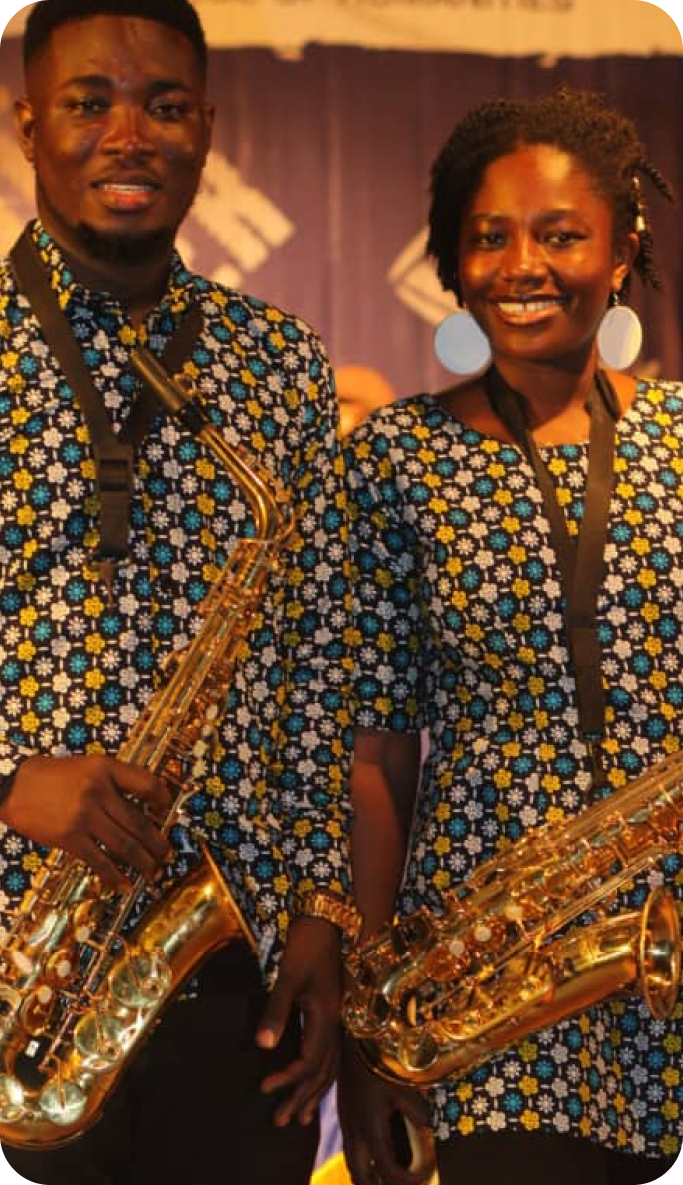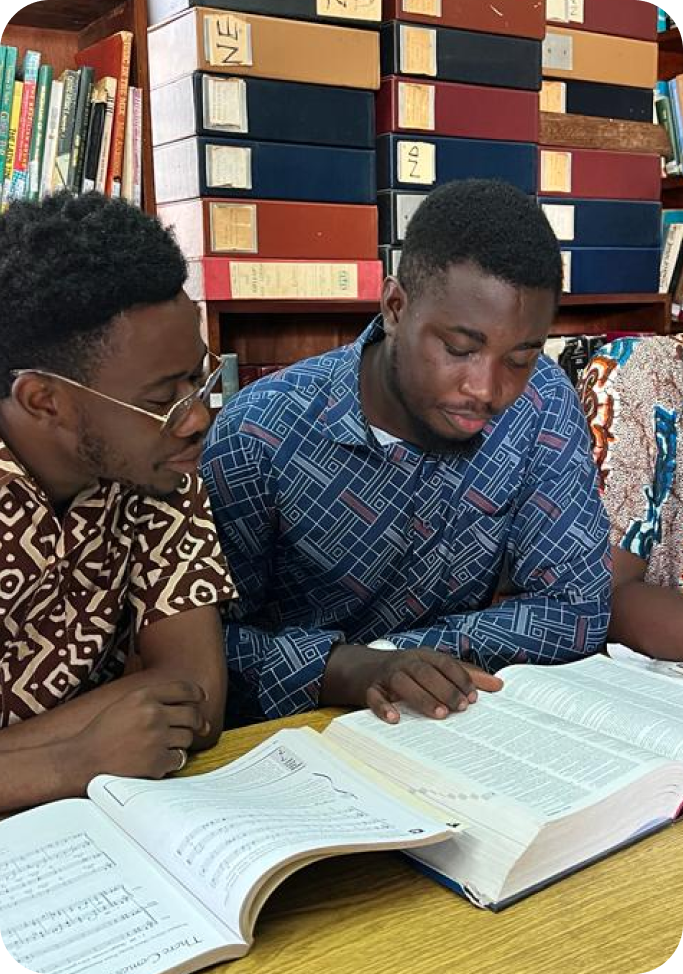Bachelor Degrees (B.A., B.F.A., B.Mus.)
The Department has historically offered three degree options: a Bachelor of Arts in Music (B.A.), a Bachelor of Fine Arts in Music (B.F.A.), and a Bachelor of Music degree (B.Mus.) at the undergraduate level.
The Bachelor of Arts program follows the traditional model of a liberal arts education, allowing students to study music while also taking other courses from the College of Humanities – often majoring or minoring in music alongside another discipline. The Bachelor of Fine Arts program has a more practical component, with the degree awarded to those who undertake broader study specifically within the School of Performing Arts, specializing in at least one of the sister disciplines (drama or dance) in addition to music. The Bachelor of Music degree has historically been awarded to those who specialize solely in music – typically orienting themselves towards a career in performance, composition, scholarship/research, or the industry.
In all programs, students typically spend the first two years studying foundational topics in African music and are required to receive practical training on an instrument and participate in an ensemble. In the third year, students are allowed to choose electives that reflect their specific interests – ranging from music technology and production to deepening their knowledge of musical traditions globally.


Masters in Music (MA, M.Phil.)
The Department of Music offers two Masters programs - a two-year Master of Philosophy degree and a one-year Master of Arts degree program with specializations in either Ethnomusicology or Theory and Composition.
Ethnomusicology option – the study of music in culture or as culture – goes beyond transcription and requisite technical understanding of the music to understanding musical functions and uses, how music relates to the broader cultural landscape, and how it reflects the social and economic, cultural, historical and political milieu in which it is made – delving deeply into the perspective of those who make, participate in, or consume music and leveraging extensive fieldwork as a vital research tool. Our M.Phil. program has equipped and trained some of the most famous scholars in African music globally, although M.Phil students have also specialized in non-African musical traditions. The first year of the program is grounded in coursework and the second year on thesis.
Music Theory and Composition option – students typically spend the first year in foundational courses and electives covering a range of topics pertinent to music theory and composition and the second year on thesis.
Doctor of Philosophy in Music (Ph.D.)
The Department of Music offers full-time Doctor of Philosophy degrees that typically span a four-year timeframe in which students are expected to build on the foundations provided in a Masters-level program (a prerequisite for admission into our Ph.D. program) while making a significant original contribution to knowledge creation or creative output in their specialized concentration area. A solid grounding in advanced research methods, academic writing, and presentations is provided, as well as opportunities to author/co-author papers, present at conferences, and participate in seminars and colloquia with other graduate students.
The Ph.D. is offered as follows
Ethnomusicology option – offers a deeper theoretical understanding of the field – requiring students to focus on a single musical tradition or related topic in which they will typically conduct extensive fieldwork, analysis, and writing – becoming, in most cases, the authority within their topic by the completion of their dissertation. In the course of the program, doctoral students have significant interactions with their faculty supervisors and others in the field and are exposed to historical foundations as well as the latest techniques, topics, and trends within ethnomusicology.
Music Theory and Composition option – a study of specialized topics in music theory (including some that focus on African music theory) as well as compositional techniques, styles, and repertoire of the specific musical traditions studied. The emphasis of a student’s doctoral dissertation varies based upon their orientation towards either a more theoretical or creative interest but, in either case, will require a strong written dissertation (in the case of composition accompanying the composition). Students receive significant mentorship and guidance from their supervisors and other faculty and are given opportunities to share their research in conferences and publications or to have their compositions performed.

